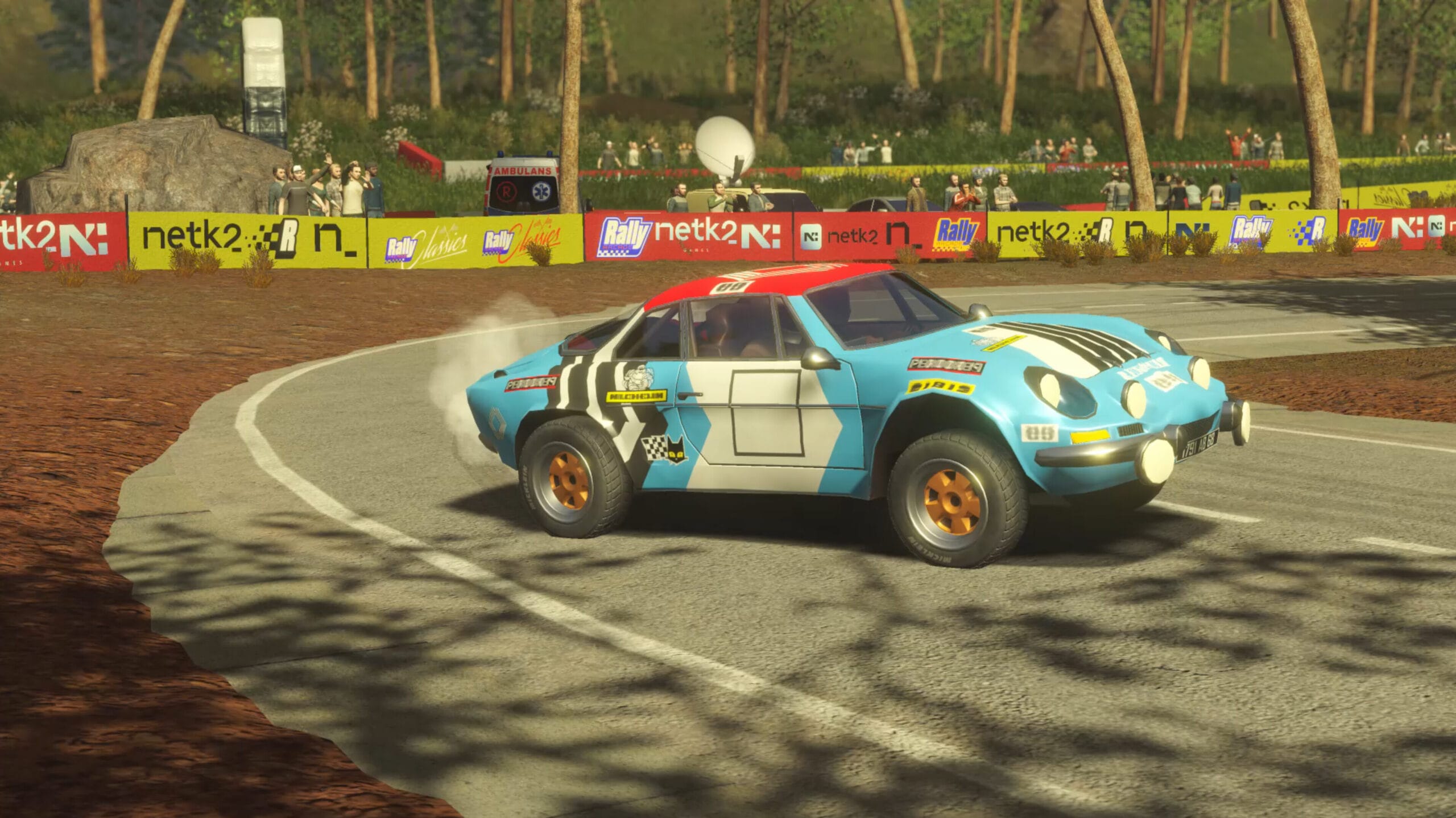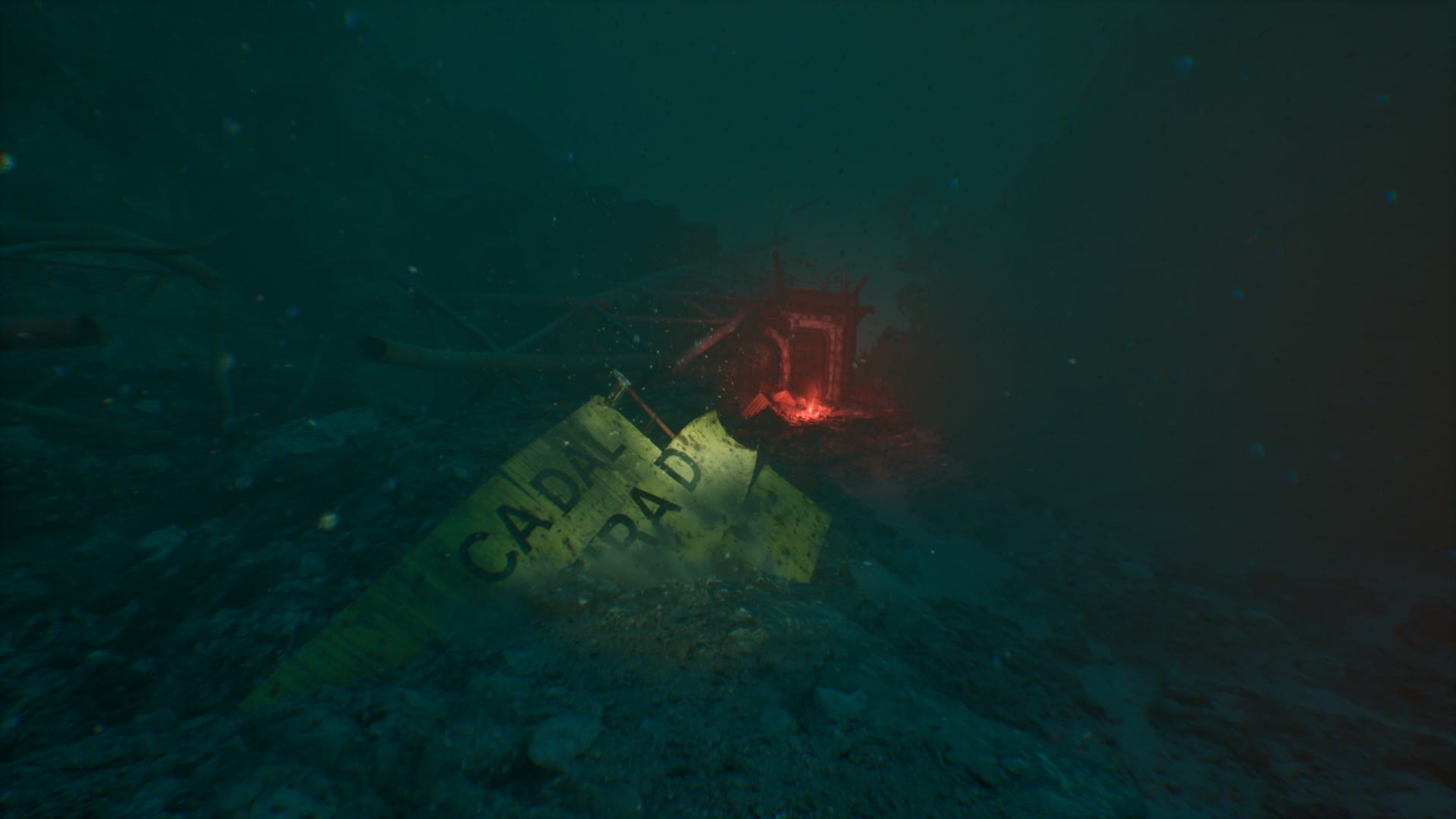In games it seems humanity can’t catch a break. Double Fine Production’s Rad sets the stage of a world that has not only gone through one apocalypse, but two. The few survivors that still exist are but a merry few that have banded together in a small village and are herded by a wise man figure wearing a gas mask, who holds the knowledge of the ancestors so that their past mistakes don’t happen again. He also can spin a mean guitar solo. Experimentation is the name of the game here, well, not in the literal sense since this game is called Rad, but you’ll know what I mean when I touch upon what Rad is all about.
As one kid from a group of younglings under the guidance of the elder, your mission is to trek across the wasteland in search of fuel to keep your village running, bat in hand and a single life to do it all in. Die and you’ll have to start all over again, losing everything that you’ve picked up along the way. It’s a good thing that you can power up yourself by the way of mutations.

The more enemies you kill, that is, mutants, the more rads you gather up — get it, rads? — building up a bar on top of the screen. Once that’s filled, you go through a random mutation, and that can vary wildly in terms of usefulness. You can end up with a giant brain for a head that can take over smaller enemies, but not boss characters, which is a toss up really, or how about a flaming arm that shoots out fireballs until you are out of breath? Sure thing. You can also get mutations by activating mysterious machines you find in dungeons or out in the field, but these befit you with passive buffs like X-ray vision and being immune to toxic pools, the kind of stuff that is supposedly very handy to have during the post-apocalypse, I’m told.
You’ll find plenty of the Double Fine humor and flair throughout Rad, but that sadly doesn’t save it from being a little repetitive and somewhat dull. Rad plays like your usual isometric roguelike game, and in that regard, it plays well enough, but its progression feels incredibly slow and limited, especially so considering its premise of having a lot of variety spawned from mutations. Then there’s the level development, which happens when you activate the required number of totems in order to open up the way to a boss fight, which always takes place in the same small room.

Other aspects of Rad are very fun, though. The art design is very quirky, making use polygonal cartoon human characters and downright gross mutant monsters over the backdrop of a surprisingly colorful post-apocalyptic wasteland. Sure, the indoor environments are expectedly bland given their high tech backstory — they’re the bunkers the old civilization stored their science goods — but the outdoors are where Rad really shines visually. Given the current fascination with 1980s nostalgia, Rad also features a lot of sound cues and music reminiscent of that decade, which makes it somewhat of a weird time piece considering the story conceit of the game taking place over the course of two different nuclear apocalypses. Does that mean that the first one took place during that time? I might be overthinking this too much…
Runs in Rad are quick enough to get back to when you die, but there’s a noticeable lack of variety when it comes to the way the levels are put together. Random generation is a term that goes hand-in-hand with roguelike, but it seems like it doesn’t really apply to Rad, since there’s seemingly a lot of repetition in that regard for this game. I ran into the same level structures after only a couple of failed attempts at completing it, which left me wondering if there really is any sort of world randomization in this game at all.
While I wouldn’t call Rad a bad game, there are enough things that keep it from being a recommendable roguelike romp, even more considering that there are much more enjoyable alternatives to be had in other previously released dungeon crawlers. Still, Rad has a lot going for it when it comes to theme and gameplay features, and for as limited as its level composition seems to be, its mutation system can generate some interesting situations to play through, which can in turn provide an extra layer of challenge that could potentially make up for its faults if you stick with it long enough.




